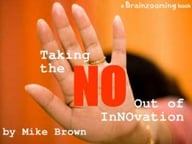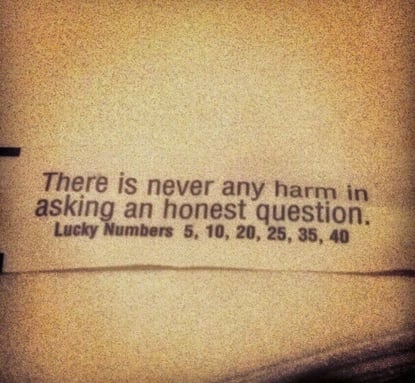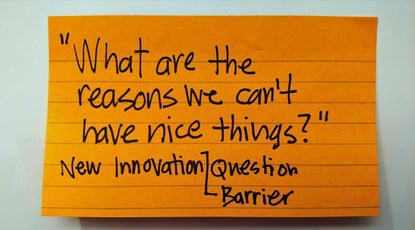Today’s question seems like a straight forward one: Who is your customer?
First a Little Background
I was excited Tuesday to be having lunch with Social Media Club of Kansas City president, Aaron Deacon, and Barrett Sydnor because Aaron always picks great places to eat. He selected a restaurant with a Mardi Gras feel (appropriate for the day), and I was eagerly looking forward to beignets. I even had my wife look at the restaurant’s menu online early in the morning to see which type of beignet she wanted me to bring home.
Arriving and parking in the restaurant’s lot across the street, I was greeted by Aaron and Barrett walking to a different nearby restaurant. It turns out the restaurant we intended to go to was closed, so Aaron had another suggestion. Since the original restaurant was closed and the parking lot was adjacent to the new destination, I followed along for the short walk without a second thought.
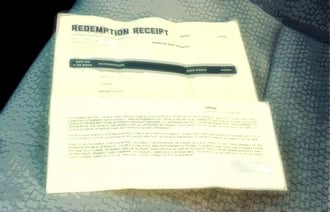 As Barrett and I left the second restaurant later, we discovered my car had been towed at the original restaurant’s behest (although it was clear they hadn’t cleared the lot of all the cars there).
As Barrett and I left the second restaurant later, we discovered my car had been towed at the original restaurant’s behest (although it was clear they hadn’t cleared the lot of all the cars there).
After a few calls, we found ourselves in a dingy office in Kansas City’s River Market, waiting in line behind a very angry woman who was mouthing off to the tow people about exactly the same experience. She had intended to go to our destination restaurant, found it closed, wound up at the same restaurant as us, and had her car towed. Based on her angry interaction with the tow people, it was clear anger wasn’t getting her anywhere. In fact, they were screwing her around to make it longer to get her car, delaying the process in every way imaginable.
When it was my turn, I quietly said I was in the same situation. The previously mouthy tow guy politely got me handled right away (especially after I was reaching over the half-door to pet the office dogs) and had me “fast tracked.” That meant driving me to the tow lot while the other woman had to sit and wait for someone to go there and get her car and return it to the office. While it cost us both $205 to get our cars back, our customer experiences, by that point, were VERY different.
Who Is Your Customer?
So back to the question: “Who is your customer?”
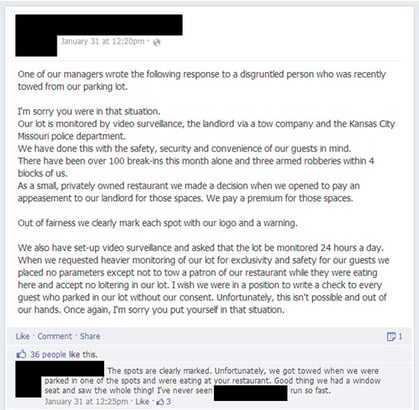 Clearly this question is open to debate. Looking at a post on the restaurant’s Facebook page, it offered an explanation of sorts about its towing policy laced with a hint of “stick it to you” contriteness.
Clearly this question is open to debate. Looking at a post on the restaurant’s Facebook page, it offered an explanation of sorts about its towing policy laced with a hint of “stick it to you” contriteness.
In the post, the restaurant makes it clear that ITS definition of a customer is limited to the person who is currently sitting in the restaurant eating . . . sort of. I say “sort of” because one comment on the post mentioned a current patron that was about to have his car towed when he had to rush across the street to stop it.
Fair enough, that’s certainly an obvious definition of what a customer is, and it makes the restaurant’s tow policy (apparently) easily enforceable.
From my perspective, however, I had become a “customer” of the restaurant earlier that morning and for several hours before showing up at the location. Anticipating it for hours and already pre-planning what to bring home to my wife had me squarely in the customer camp. I was hoping we’d be able to return together in the future even though we have to be very selective about restaurants because of food reactions she has.
Even after I parked and had to settle for another restaurant, I’d have told you I was there to be a customer of the original restaurant.
It's Not All that Clear, Apparently
Certainly there was a disconnect between the restaurant and me in defining “who is your customer.” Clearly, the restaurant doesn’t even view money changing hands as part of a customer definition since it got some cut of my several hundred dollars (which is an interesting business model for a restaurant that doesn’t want to open during the day . . . simply have people towed and increase your average lunch check vs. actually being open).
While the restaurant has a very pragmatic definition of “who is your customer,” it suggests no understanding at all of that whole customer lifetime value thing. Maybe that's fine, because having spent $205 to “not eat” at the restaurant, their cut of the fee used up my full customer lifetime value for their restaurant.
At least now the restaurant and I are on the same page and both agree – I’m not a customer and never will be.
Think About Your Business - Who Is Your Customer?
What types of definitions do you put around who your customer is in your business? Do you have to see someone before they become a customer? Do you have to actually be serving them? Or might someone be your customer well before you have any idea they are considering YOU first? That's a big part of the Google Zero Moment of Truth work that potential customers are seeking out information about your business before they make a move in your direction.
But, What’s the Restaurant’s Name?
You may wonder why I didn’t name the restaurant and flame them. It crossed my mind. On the way to the tow place I found the @Brainzooming Twitter account has about 60 times the restaurant’s Twitter followers. I followed them, and they blocked me on Twitter even though I didn't tweet one thing about them.
Ultimately though, trying to flame them on social media gets the restaurant more attention with a global audience of Brainzooming readers. Why would I want to do that?
Far better for the angry woman in front of me – who works for a local TV station – to try and work up the story for her TV station. The story of towing scams in Kansas City should be ripe for revisiting. If you live in Kansas City and want to know the restaurant, however, message me, and I’ll let you know where it was. And emphasize why you should join my boycott! - Mike Brown
Subscribe for Free to the Brainzooming blog email updates.
Download the free ebook, “Taking the NO Out of InNOvation” to help you generate fantastic new ideas! For an organizational creativity boost, contact The Brainzooming Group to help your team be more successful by rapidly expanding strategic options and creating innovative plans to efficiently implement. Email us at info@brainzooming.com or call us at 816-509-5320 to learn how we can deliver these innovation benefits for you.

